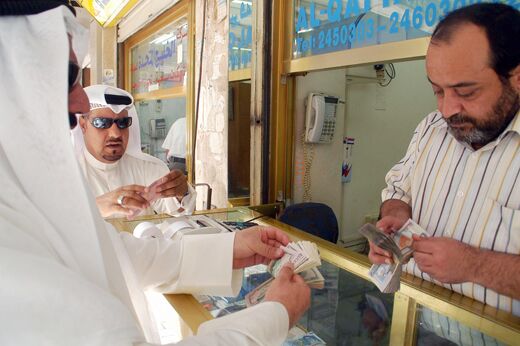
Kuwait Abandons U.S. Dollar Peg
On May 20, Kuwait decided to stop pegging its currency to the U.S. dollar and joined a growing list of nations that set the price of their currency to a basket of currencies. As Jim Jubak of MSN Finance quipped, you know your currency has become a 98-pound weakling when Kuwait can kick sand on it. Indeed, global U.S. dollar demand is in decline.
Sheikh Salem Abdulaziz Al-Sabah, governor of the Central Bank of Kuwait, said the fall of the exchange rate of the U.S. dollar has “contributed to local inflation” and had “negative effects” on the economy. He said the move away from the dollar was in Kuwait’s “national interest.”
Outside of petroleum, natural gas, fish and shrimp, Kuwaitis are forced to import. This factor could have played a major role in the decision to decouple the dinar from the dollar. A sliding dollar meant higher costs for nearly everything.
Before the decoupling decision, the Kuwaiti Central Bank held the dinar to within 3.5 percent of the dollar; when the dollar moved, the dinar moved to stay within 3.5 percent of it. By decoupling from the dollar and linking to a basket of currencies—which the Kuwaiti bank has indicated will include 75 percent U.S. holdings and 25 percent other foreign currencies—Kuwait has taken a firm step to control the depreciation of its currency and rising inflation.
Of course, Kuwait’s 25 percent shift away from the dollar will have no noticeable impact on the U.S. economy. But where the impact is being felt is the depreciation of the dollar across global markets, not in terms of its valuation—though that too is slipping—but in terms of central bankers around the world choosing to buy other currencies rather than hold just U.S. dollars. Demand for the U.S. dollar is dwindling, and its desirability as a world reserve currency is fading.
In turn, the downturn in the demand for U.S. dollars could be a wider reflection of dwindling confidence in the U.S. economy and a shift in focus toward the European Union economy, which has begun to gather steam. Kuwait’s shift from the dollar, while not being seismic in scale, confirms that the U.S. dollar is on the way out. Other nations appear set to increasingly dump the dollar for the fast-growing alternative: the euro.
